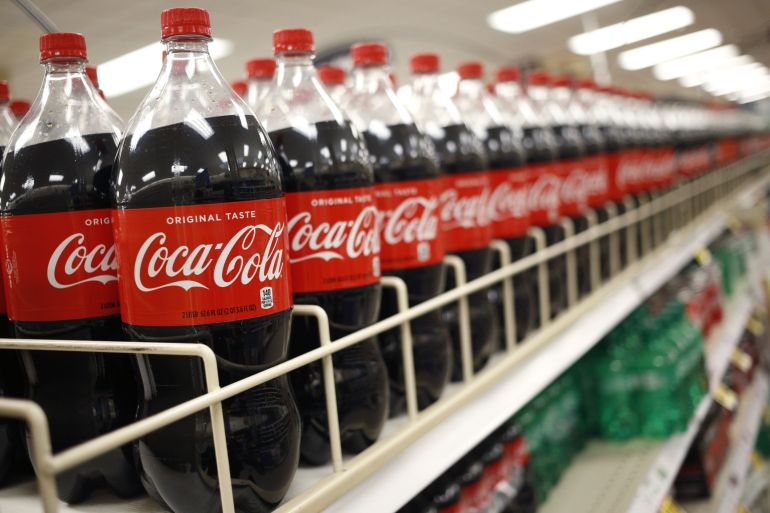Refreshing: Coca-Cola introduces 100% recycled bottles in the US
The new bottles will cut the company’s use of new plastic by over 20 percent in North America compared to 2018, it said.

Coca-Cola Co. is introducing 100% recycled plastic bottles in the U.S.—a major shift in its sustainability strategy.
The company responsible for more plastic pollution than any other, according to the Break Free From Plastic Campaign, once advocated for plant-based bottles that don’t use fossil-fuel inputs. Its new focus, Coca-Cola says, is a substantial step in combating the plastic waste that clogs the world’s waterways.
Keep reading
list of 4 itemsPlastic under scrutiny: Bank lending to industry faces opposition
Online shopping: Great for bargains, terrible for the environment
Amazon must stop flooding our oceans with plastic waste
The new recycled Coke bottles will reduce the company’s use of new plastic by more than 20% across its North American portfolio compared to 2018, according to the company.
Alpa Sutaria, Coca-Cola Co.’s vice president and general manager of sustainability, said this is a change in the way the company reduces waste. “The reality is that that plant-based material, as it’s turned into plastic, is really still a virgin plastic,” she said. That’s not something consumers will stand for anymore, Sutaria said, instead telling companies they want reusable and recycled options.
Coca-Cola pledged in 2018 to make 100% of its packaging recyclable by 2025, and to use 50% recycled material in bottles and cans by 2030. The next year, it announced that Sweden would become the first market where all its products are sold in fully recycled plastic bottles.
The company is introducing a new 13.2-ounce bottle made of 100% recycled PET, or rPET, in addition to making 20-ounce bottles made of rPET. Sutaria said the size change is partly a reaction to consumer feedback that 20-ounce bottles can be too much, but 12-ounce cans too little. The new bottles will roll out this month in the northeast, while they’ll arrive in Florida and California and then nationwide later in the year.
The new offering will cost $1.59 before tax, compared to a 20-ounce bottle that costs about $1.99. Sutaria said the cost of the rPET bottles will be the same as for regular plastic. The company is also moving Sprite to all-clear packing by the end of 2022 to make it easier for the bottles to be recycled.
Coke’s first moved to use plant-based bottles in 2009 was pioneering, said Julia Attwood, leader of BloombergNEF’s advanced materials research. Technological advances now allow for bottles that are 100% made of plant matter, up from about 30% when Coke first started using them.
The company’s latest move away from plant-based plastic could spell a big change for the rest of the beverage industry, Attwood said. “For the champion of the bio-based bottle to essentially be abandoning it is a big sign for how the circular economy is going to move first,” she said.
While Attwood said that from an emissions standpoint, bio-based bottles are better than recycled, as the latter is still derived from oil. But the carbon impact of 100% rPET bottles is much lower than regular plastic. “You basically cut the carbon footprint in more than half by using 100% recycled, and the cost isn’t significantly higher,” she said.
Significant hurdles remain in the U.S. recycling market, however, including a wide range of different policies that exist at the state and local levels. Sutaria said companies need to find both local and national ways to implement recycling.
“If we could get more recycling to happen, then we could get more of the things that are recycled to be turned into really clean materials that can be reused, then it makes it a lot easier,” Sutaria said.